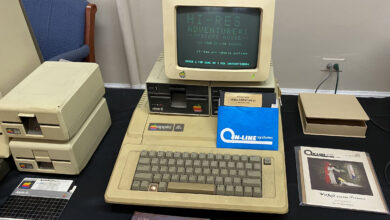From Brick to Slick: Celebrating the Call That Started It All
On April 3, 1973, amidst the bustling streets of New York City, history was made in a moment that would redefine communication forever. Martin Cooper, a Motorola engineer and visionary, made the first-ever mobile phone call using a prototype of the Motorola DynaTAC 8000X. This groundbreaking event showcased the potential of wireless communication and set the stage for the mobile revolution that would transform how people interact with the world and each other.
The call was made to Dr. Joel S. Engel, Cooper’s counterpart and the head of research at Bell Labs, a rival company in the race to develop mobile technology. The choice of Engel as the first call recipient was a bold move by Cooper, symbolising Motorola’s lead in the mobile technology race. Cooper reportedly began the call with the words, “Joel, this is Marty. I’m calling you from a cell phone, a real handheld portable cell phone.” The call was made on Sixth Avenue in New York City, with Cooper standing on the sidewalk, holding the hefty prototype that weighed about 2.5 pounds and was 9 inches long.
The Motorola DynaTAC 8000X, the device used to make this historic call, was a far cry from the sleek smartphones we use today. With a bulky frame, 30-minute talk time, and a battery life of only 8 hours on standby, it was nonetheless a marvel of its time, embodying the culmination of years of research and development in mobile technology. The device would eventually become commercially available in 1983, signalling the dawn of the cellular age.
The significance of the first mobile phone call extends beyond the technological achievement it represented. It was a pivotal moment highlighting the possibilities of personal, portable communication. Before this, telephones were tied to specific locations – homes, offices, or phone booths. Making calls from anywhere to anywhere was revolutionary and opened up new avenues for connectivity, business, and personal freedom.
The repercussions of Cooper’s call are felt even more strongly today, in an age where smartphones have become ubiquitous, serving not just as communication devices but as gateways to the world’s information, commerce, and social interaction. The mobile phone has evolved into an essential tool for modern life, influencing culture, economy, and the very fabric of society.
As we commemorate the anniversary of the first-ever mobile phone call, we are reminded of the leaps of imagination and determination that drive technological advancement. Martin Cooper’s call on April 3, 1973, was not just a conversation between two engineers; it was the first whisper of a conversation that would grow to encompass the entire globe, connecting billions of voices in ways previously unimaginable.
The journey from that first call to today’s smartphones is a testament to human ingenuity and the relentless pursuit of innovation. It serves as a reminder of how far we’ve come and a hint at the possibilities in the ever-evolving landscape of mobile technology.





